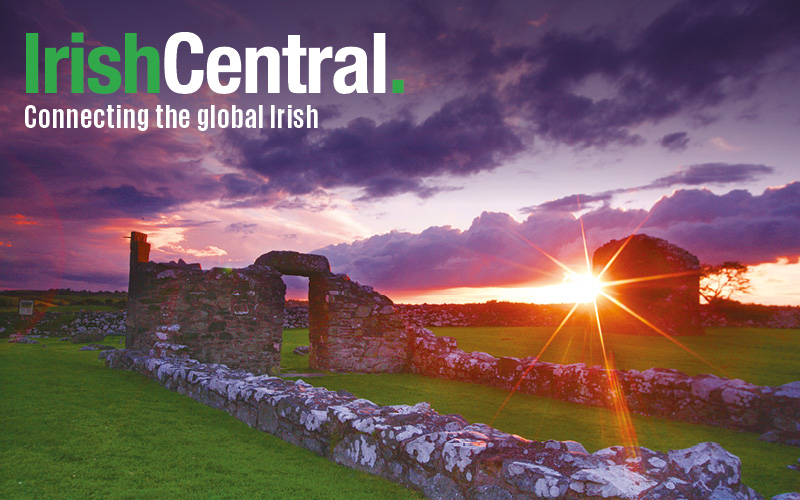WHEN America sneezes, the rest of the world catches the cold. The famous phrase originated back in 1929 in the aftermath of the Wall Street crash. It's just as true these days, of course, although in the case of Ireland it would be more accurate to say now that when America sneezes, Ireland catches double pneumonia.
It's the price we pay for having one of Europe's most open economies, and also for having so many U.S. multinational companies with big plants here. When times are good - and they have been very good indeed both in the U.S. and in Ireland until recently - the Irish economy benefits hugely. But when things turn sour, we suffer disproportionately.
There's no big mystery to this. When the U.S. economy is doing well, world trade and global stock markets tend to do well too. And this healthy international trade benefits an open economy like ours. So in that general way we are affected by the American economy.
But it's also more specific than that. Our biggest export market for many years used to be Britain. These days Ireland's biggest single export market is the U.S.
In 2006, the last year for which figures are available, over 18% of total Irish merchandise exports went to America. So if Uncle Sam is tightening his belt instead of spending, we immediately start feeling it here.
And of course there's the other factor, the number of U.S. companies who have set up big plants here employing so many people. If Uncle Sam is cutting back and retrenching, we can hardly blame him for pulling out of places far away (like Ireland) and concentrating on the home base until the bad times blow over.
There are close to 500 U.S. companies in Ireland, accounting for somewhere around 100,000 jobs here. That's around 70% of all the jobs provided by foreign companies in Ireland.
This is quite remarkable given that we have been part of the European Union for so long, and that one of the central policies of the EU is that European companies can set up anywhere across Europe and sell their goods freely across the giant European single market.
Yet for us American companies are still the biggest investors here and so far most of them seem to be staying, in spite of the downturn. But all it takes is a few dozen departures to really hurt the economy here.
A few weeks back an International Monetary Fund (IMF) report picked up on the particular vulnerability we in Ireland have to the current slowdown in the American economy and the turmoil on international stock markets prompted by fears of a full blown recession in the U.S.
The IMF said that if the slide in the U.S. economy continues it would have "a significant adverse impact on Irish growth." Problems in the U.S. economy have "stronger effects" on the Irish economy than similar problems in our "partner economies" in Europe, the IMF added.
So you won't be surprised to hear that there are an awful lot of people here these days anxiously looking to Boston instead of Berlin, to use Mary Harney's old phrase. We are watching developments in the U.S. economy more closely than any other European country because it matters more to us. And the effects of the slowdown in the American economy are already being felt in Ireland.
Most people here don't have stocks and shares. But a great many people have a pension of some kind, and that links them directly into the slide in the U.S. and global markets.
Speaking personally, I have been watching some of my own pension fund shrinking in the cold wind of the downturn, and I can tell you it gives you that sick, helpless feeling. There's a lot of people with that same feeling of nausea right now.
Several very worrying signs about the Irish economy have emerged in the past few weeks. The first is the number of companies here that are laying off workers. The layoffs are coming across the board in industries that were supposed to be safe.
We have been told for the past few years that our manufacturing base in Ireland will continue to shed low-skill jobs to low-cost countries in other parts of the world. That has been going on for some time and there seems to be little we can do about it, since Ireland is far from being a low-cost country these days.
We were told that high skill jobs in sectors like information technology and pharmaceuticals would be safe. We were also told that jobs in plants that made high quality products with strong brand names would also be safe, because the affluent consumer would choose the best. But some of the job losses here recently have cast a question mark over these assurances.
Let's take a couple of examples from last week. Two hundred and twenty jobs are to go with the closure of the Jacobs biscuit factory in Dublin.
If you're Irish you will know how significant that is because Jacobs is a part of our culinary history, a bit like Guinness. Generations of Irish people have known and loved Jacobs biscuits (or cookies, as you call them) especially old favorites like cream crackers, fig rolls, mikados (with furrows of pink marshmallow and red jam down the middle), and luxurious chocolate kimberleys. Generations of Irish kids knew and loved them all.
They still sell. But they're too expensive to make here anymore. So now these uniquely Irish creations will come to us from a factory in Europe somewhere (a thought to bear in mind if you are buying a hamper of "Irish" food in New York and you see the familiar mikado packet).
Another one from last week was the announcement that 360 jobs are to be lost in the American pharmaceutical company Allergan which makes silicon and saline breast implants in its plant at Arklow in Co. Wicklow.
There were the inevitable jokes about the plant going bust, but there was nothing funny about what was happening. Both the company and the Arklow plant are profitable, but Allergan can make even more money by switching the jobs from Arklow to a new state-of-the-art facility they have built in Costa Rica, where the wages will be one-fifth of what the Irish workers were earning. So that's what they are doing.
They say it's for "economic and operational reasons," but the truth is that it's about money. And it's not about making a profit, it's about making maximum profit.
One of several employees interviewed on the TV news outside the Arklow plant last week looked bitterly into the camera and said, "It's too expensive to live in Ireland, and it's too expensive to work in Ireland."
Everyone understood what she meant - the cost of living here means you need decent wages, and those wages will probably mean you will lose your job to somewhere like Costa Rica. It was hard not to be moved by the despair in her voice at how hopeless the situation was as she saw it.
Other sectors which are supposed to be safe are also looking over their shoulders. Dell computers, for example, have their main manufacturing plant on this side of the globe in Limerick where they employ around 3,000 people.
But the huge new plant Dell built in Lodz in Poland last year started production a couple of months ago, and in spite of assurances there are ongoing concerns in Limerick about the company's long-term future there.
Just before Christmas came the news that the Industrial Development Authority (IDA) here was considering a huge grant for Dell that could see up to 1,000 "high-end jobs" in R&D and customer support being created in Limerick over the next few years.
But the suspicion locally in Limerick is that while this is good news, it is also the beginning of the end of manufacturing in Limerick and its replacement by higher skill jobs that will be fewer in number.
There is a real sense of frustration here now at the drip-drip loss of jobs in manufacturing in Ireland that has been going on for months, even years. Every week now seems to bring news of another closure, of more jobs going overseas to cheaper labor markets. And now on top of that it looks like we will be affected by the slowdown in the U.S. and elsewhere more than most.
Coincidentally last week, the latest figures for the number of people out of work here and claiming benefit were released. The figures showed that the number of people claiming unemployment benefit in January had risen at the fastest rate since 1980 (and a lot of you over there will remember how bad the '80s were).
What this tells us is that high profile closures like Jacobs and Allergan are part of a wider picture of economic slowdown here. Unemployment here is still low - it was only 4.5% last year and the forecasters say that it will increase to 5.6% this year. But it's the speed at which it is growing now that is worrying.
The rise in unemployment, of course, is also due to the property slump, and in fact most of those now losing their jobs are construction workers not manufacturing workers. And the property slump is still deepening, with prices now back to where they were at the end of 2005 and still falling.
It's not all bad news, however. According to the Central Bank, growth in the Irish economy will be 2.6% in 2008, way down from the 5.1% it was in 2007 but still way ahead of growth rate predictions for the American economy, for example. And the Bank is predicting that growth here will bounce back to 4% in 2009.
So there's life in the Tiger yet. And please, no jokes about dead cats bouncing.




Comments